

others
Would a company like Twitter do better if run by a DAO? – Crypto News
In 2023, business is evolving. Remote work is on the rise, Compared to the pre-pandemic times, and thanks to various macroeconomic factors, many industries aren’t offering the competitive wages or benefits they used to. This has led to a reevaluation of individual attitudes toward work by millennials and Gen Z, who have largely replaced the traditional 9-to-5 with freelancing and the gig economy.
This shift may be understandable, but it comes with its own issues. For one, business models based on remote freelancing often don’t offer much room for employees to move up, and they still struggle with exploitation and under-compensation, Fortunately, a new type of organizational structure is emerging in the form of the decentralized autonomous organization, or dao. When built correctly with the company’s needs in mind, DAOs can revolutionize how businesses are run to improve the lives of all employees, maximize productivity and returns, and keep bad management — such as what has been happening to Twitter — in check.
DAOs for business governance
Traditional business models offer a hierarchy of authority. Typically, the CEO holds the highest position, alongside other top executives and sometimes a board of directors. The CEO is primarily responsible for making major decisions, and despite taking input from others, only a few dozen individuals hold the power to influence potentially thousands or even millions of others, depending on the scale of the business.
DAOs decentralize this hierarchy. In the DAO model, every member is a co-owner and employee simultaneously. All participants act as decision-makers and potential contributors, and their investment in the organization generally determines their voting weight, usually determined by how many “governance tokens” they hold.
Known as “tokenized governance,” this approach offers various advantages to businesses. One of the most noteworthy is its potential to entice and retain essential personnel, external collaborators, partners and investors. By enabling stakeholders to have a voice in the business’s trajectory, tokenized governance fosters a feeling of ownership and responsibility that can inspire stakeholders to dedicate their time, energy, and assets to the enterprise. This, in turn, can help to retain vital employees who may be more inclined to stay with an organization that recognizes their contributions and offers them a stake in the company’s prosperity.
Indeed it’s been shown that workplaces where employees feel they are being heard and treated fairly perform 26% better and have 27% higher retention than those in which they do not.
Tokenized governance also has the potential to enhance the efficiency of decision-making. By distributing decision-making power across stakeholders, tokenized governance can prevent crucial business decisions from being influenced by a single, centralized authority.
Decentralized research, product development, marketing and fundraising are all possible through DAOs, bringing more equity in both control and remuneration for everyone within the organization. Indeed, employee compensation is also proportional to stake in the operation. Wages aren’t determined by the whims of the company heads but rather by the guidelines of the entire DAO, which are defined and voted on by all members.
Another key benefit that DAOs can bring to businesses is the fact that virtually anyone from anywhere on the planet can participate in them. All a potential member needs is a working internet connection. This has important implications for expanding the potential workforce and promoting diversity. Studies show that ethnically diverse organizations are 36% more likely to perform better, on average, than less diverse counterparts.
Lastly, DAOs offer a high degree of transparency, which breeds trust. The importance of trust for employees, customers and investors cannot be understated, as it defines the relationship these entities have with the company.
There is no better modern example of this than what has been unfolding with social media giant Twitter. After Elon Musk famously bought the company in late 2022, Twitter has seen a long list of technical issues, mass layoffs and confusing policy changes that all seem to stem from the whims of its new owner. Meanwhile, the company appears to have completely stopped releasing transparency reports as of January, meaning the view into this massive service has become exceedingly opaque from the outside.
Alternatively, if Twitter were being run by a DAO, these issues couldn’t really exist. Even if Elon Musk were the majority owner, the voices of everyone else in the company (and potentially the user base) would still hold weight over decision-making. It couldn’t be a one-person show. Changes to the code base, employee lineup and service policy would all need to be voted on by the whole, and the entire system could be built to be wholly auditable and transparent.
Even within Web3, projects are often not governed in a truly decentralized manner. For example, recently The Arbitrum Foundation began selling their ARB tokens even before the governance community of token holders had finalized the organization’s nearly US$1 billion budget. This caused widespread backlash in the community and saw the price of ARB fall 9% in the following 24 hours. If this decision had been made in a decentralized fashion via a DAO, it would have been impossible to do anything without community approval.
Current reality of DAOs
While DAOs offer exciting possibilities for both startups and existing brands, some kinks still need to be worked out. For one, the type of DAO structure described so far is called “flat.” Even before DAOs, companies have tried building architecture that did away with traditional hierarchy, often with poor results. Major names like Moderate and Zappos have had publicly documented issues and have had to abandon their flat business models outright.
This is due to the fact that in such a model, there are many elements of running a business that simply don’t get done. Who manages employee benefits? Who oversees key performance indicators and enforces that they are met? The list goes on. While everyone is free to make proposals and vote on these issues, it isn’t specifically anyone’s assigned job, and so many things go undone.
When applied to DAOs, there are also problems with how power dynamics play out in practice. If voting is simply weighted by the number of governance tokens held, then majorities or alliances can still form that will effectively control the project and silence any opposition. If the DAO offers the ability for investors to get more tokens, then those with deeper pockets will invariably hold the most sway.
But those challenges could be overcome through better DAO design.
Making DAOs work
DAOs can be designed with a wide array of roles and incentives built in, emulating the best working elements of traditional companies. Instead of asset-weighted voting, influence can be assigned through meritocracy and past contributions. Fortunately, there are already some examples like this being developed. OpenChat is one such application, as it is a fully decentralized chat app governed by the users themselves. Voting power is based on a more complex system that accounts for not only assets held but how long they have been staked. This gives every member a real incentive to participate without simply putting all the power into the hands of the wealthiest.
Implementing such an approach stands to be a powerful tool for transforming business across almost all industries. The potential that DAOs offer has even been noted and explored by the World Economic Forum, which agrees that this technology stands to overhaul how collaboration is going to work in the future of the digital business. DAOs may even pose a threat to existing large corporations that are slow to change. Customers may quickly pivot to companies run by corporate models that focus on their community, not their CEOs and shareholders. The key to unlocking all of this will be to build them properly and balance equity, responsibility, and compensation.
The bottom line is that some form of decentralized governance is the future of business. The potential benefits for both the employees and the company as a whole are too great to ignore. While there will need to be meticulous thought put into the structure of these organizations, once accounted for, this model could become the standard in many industries. The companies that embrace this change could be the leaders of the next generation of services that define our world, and the ones that don’t see their workforce begin to abandon ship.
-
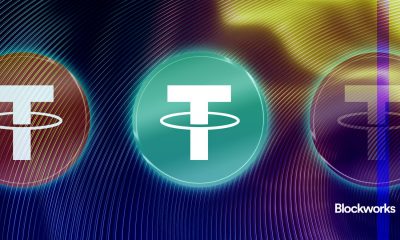
 Cryptocurrency6 days ago
Cryptocurrency6 days agoTether enters US market with USAT stablecoin – Crypto News
-
Business1 week ago
AI Coins Gain as US SEC Crypto Task Force Met Multiple Firms Today – Crypto News
-
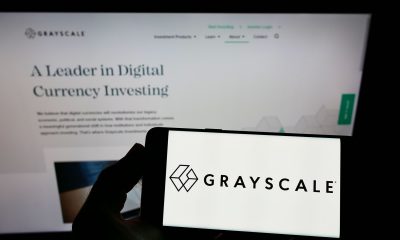
 Blockchain1 week ago
Blockchain1 week agoGrayscale Files to Create ETF for LINK Digital Assets – Crypto News
-
others1 week ago
Breaking: Cboe to Launch Bitcoin, Ethereum Continuous Futures on November 10 – Crypto News
-
Cryptocurrency7 days ago
Breaking: $9T BlackRock Plans To Tokenize ETFs Following Bitcoin ETF Success – Crypto News
-
others1 week ago
Grayscale Files Registration Statements for Litecoin, Hedera, and Bitcoin Cash ETFs – Crypto News
-

 Cryptocurrency6 days ago
Cryptocurrency6 days ago78% of Top Alts Beating Bitcoin, ETH Up 2X – Crypto News
-
others1 week ago
Senate Democrats Signal Bipartisan Support With Release Of CLARITY Act Framework – Crypto News
-
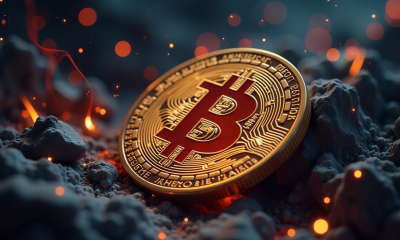
 Cryptocurrency7 days ago
Cryptocurrency7 days agoBitcoin price surges to $1,15,660 as ETF inflows and Fed policy shift align – Crypto News
-

 Cryptocurrency6 days ago
Cryptocurrency6 days agoLINEA price analysis as muddled airdrop causes plunge despite high-profile listings – Crypto News
-

 Cryptocurrency4 days ago
Cryptocurrency4 days ago‘Crypto Is Dumber Than Crap’: Dave Ramsey – Crypto News
-

 Cryptocurrency6 days ago
Cryptocurrency6 days agoWLFI and What Eric Trump’s Alt5 Exit Means For Its Future – Crypto News
-

 De-fi1 week ago
De-fi1 week agoSolana-Based AgriDex Sees $9M in Stablecoin Trades Across African Markets – Crypto News
-
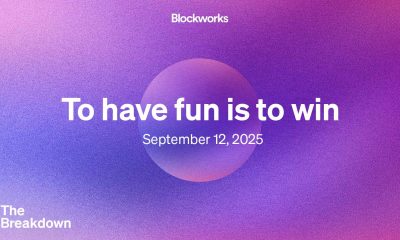
 Cryptocurrency5 days ago
Cryptocurrency5 days agoFriday charts: Ellison is having fun again – Crypto News
-
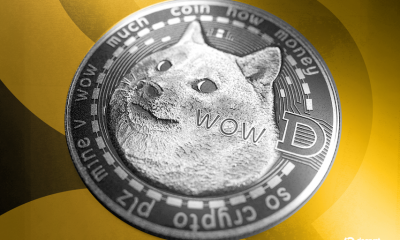
 Cryptocurrency5 days ago
Cryptocurrency5 days agoDogecoin Price Skyrockets as DOGE Massively Outpaces Bitcoin, Ethereum Gains – Crypto News
-
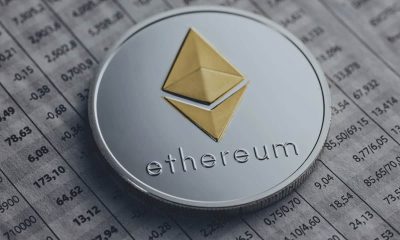
 Cryptocurrency5 days ago
Cryptocurrency5 days agoEthereum Devs Are Underpaid by Over 50%: Report – Crypto News
-

 Cryptocurrency5 days ago
Cryptocurrency5 days agoGalaxy Digital Pulls $40M Into Solana Amid Record-Breaking DeFi Surge – Crypto News
-

 Cryptocurrency4 days ago
Cryptocurrency4 days agoEthereum maps a 6-month privacy plan – What changes for users now – Crypto News
-
others3 days ago
Solana Price Prediction: Analyst eyes $1,250 as Galaxy Digital and Forward Industries Intensify Accumulation – Crypto News
-
others3 days ago
Solana Price Prediction: Analyst eyes $1,250 as Galaxy Digital and Forward Industries Intensify Accumulation – Crypto News
-

 Cryptocurrency5 days ago
Cryptocurrency5 days agoSui price rises as broader crypto market bounces – Crypto News
-

 Cryptocurrency4 days ago
Cryptocurrency4 days agoOndo surges as RWA growth fuels price rally – Crypto News
-
Business1 week ago
SEC Delays Decision on Bitwise Dogecoin ETF Ahead First DOGE ETF Launch – Crypto News
-
Business1 week ago
Metaplanet Upsizes Capital Raise To $1.4 Billion To Buy More Bitcoin – Crypto News
-
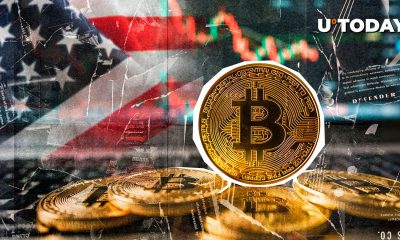
 Cryptocurrency7 days ago
Cryptocurrency7 days agoUS Might Start Holding Bitcoin as Strategic Asset, Galaxy Analyst Predicts – Crypto News
-

 Business7 days ago
Business7 days agoCan Algorithmic Pricing Disclosures Build Consumer Trust? – Crypto News
-
Cryptocurrency5 days ago
Why is Pepe Coin Price Rallying Today, September 13? – Crypto News
-
Business1 week ago
Meme Coin Price Prediction: Shiba Inu, Pepe Coin, Dogecoin, TRUMP – Crypto News
-

 Metaverse1 week ago
Metaverse1 week agoAI tools can help, but they can also cause trouble. What advisors need to know. – Crypto News
-
Technology7 days ago
Why Arthur Hayes Is Doubling Down on ENA $1M Surge – Crypto News
-

 Cryptocurrency6 days ago
Cryptocurrency6 days agoStreamer Gets Slapped by Gym Influencer Bradley Martyn, Pumping Solana Token – Crypto News
-

 others1 week ago
others1 week agoEuro under pressure ahead of protests and 2026 budget – Crypto News
-
Business1 week ago
SEC to Host Crypto Privacy Roundtable on October 17: Agenda and Key Details – Crypto News
-
Business1 week ago
SEC Delays Franklin Templeton Solana ETF Decision Until November – Crypto News
-
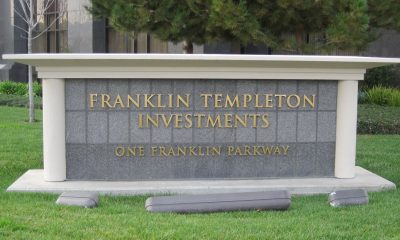
 Cryptocurrency1 week ago
Cryptocurrency1 week agoBreaking: Major XRP ETF Proposed by $1.5 Trillion Financial Giant Faces Fresh SEC Delay – Crypto News
-

 Blockchain6 days ago
Blockchain6 days agoBitcoin in Holding Pattern While Altcoin Treasurys Gain Ground – Crypto News
-
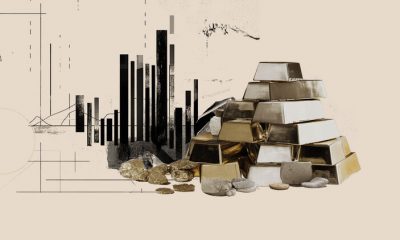
 others3 days ago
others3 days agoGold steadies below record highs ahead of pivotal Fed decision – Crypto News
-

 others1 week ago
others1 week agoWhat’s fueling the 8% revenue growth? – Crypto News
-
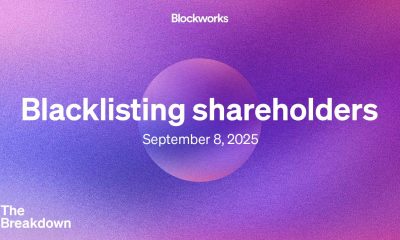
 Cryptocurrency1 week ago
Cryptocurrency1 week agoWorld Liberty Financial is perfecting TradFi – Crypto News
-
Cryptocurrency1 week ago
Eric Trump Removed From WLFI Treasury Firm Alt5 Sigma’s Board – Crypto News
-
Technology1 week ago
Grayscale Files Registration Statements for Litecoin, Hedera, and Bitcoin Cash ETFs – Crypto News
-

 Technology1 week ago
Technology1 week agoBGMI 4.0 Update: Krafton rolls out Spooky Soiree with new modes, weapons, features on Android — how to install – Crypto News
-

 Technology1 week ago
Technology1 week agoMicrosoft AI CEO Mustafa Suleyman explains why AI should never get rights: ‘Dangerous and misguided’ – Crypto News
-
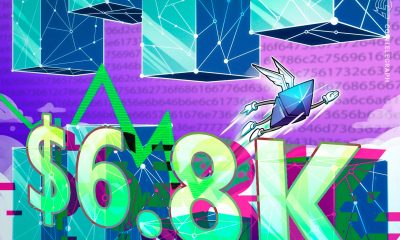
 Blockchain7 days ago
Blockchain7 days agoETH Eyes $6.8K In Q4 as Accumulation, CME OI Surges – Crypto News
-

 Blockchain6 days ago
Blockchain6 days agoPolymarket Targets $10B Valuation With US Launch Plans – Crypto News
-

 Blockchain6 days ago
Blockchain6 days agoMid-Sized Bitcoin Holders Break Records With 65K BTC Weekly Accumulation – Crypto News
-
Technology6 days ago
GEMI Stock Rises Over 20% Following Gemini’s Debut on Nasdaq – Crypto News
-
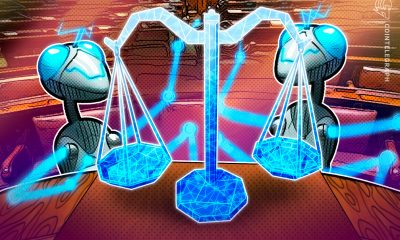
 Blockchain6 days ago
Blockchain6 days agoKashi Is Ready To Fight For Prediction Markets Amid New Lawsuit – Crypto News
-

 Technology1 week ago
Technology1 week agoXVS price turns bullish as Venus Protocol recovers funds stolen from phishing scam – Crypto News
-
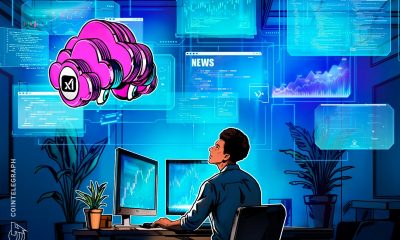
 Blockchain1 week ago
Blockchain1 week agoHow to Turn Crypto News into Trade Signals Using Grok 4 – Crypto News






